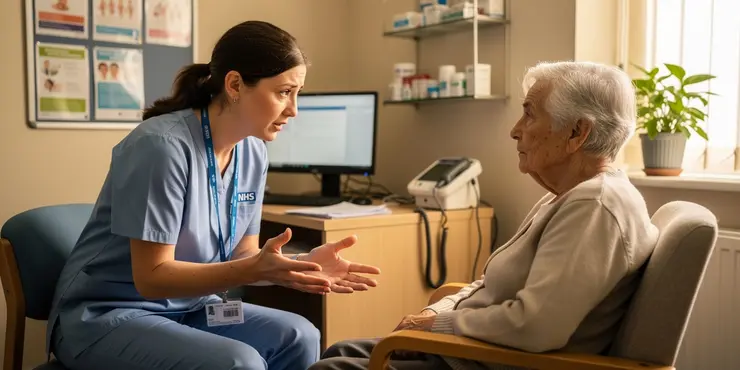
Find Help
More Items From Ergsy search
-
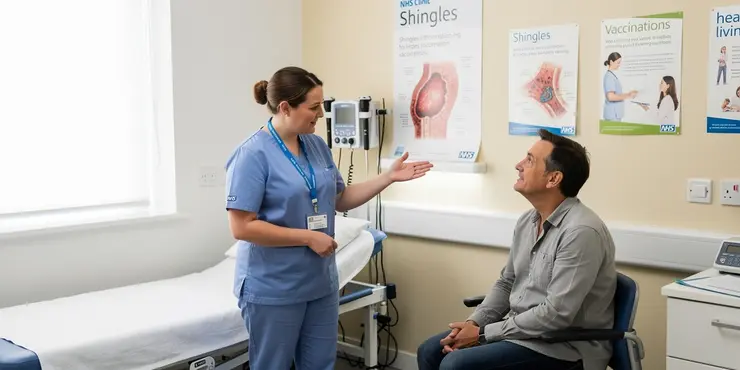
Is shingles contagious?
Relevance: 100%
-
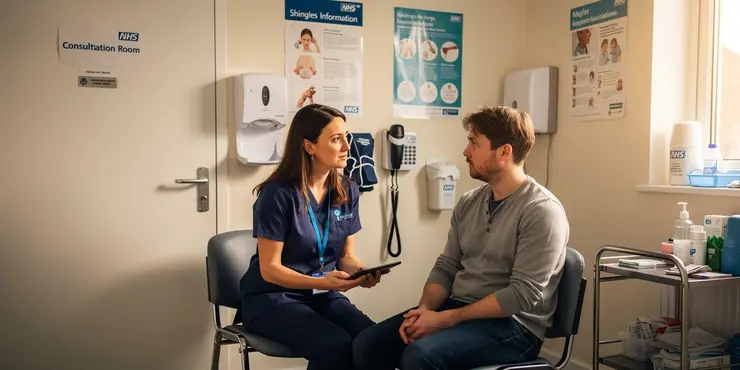
What is shingles?
Relevance: 100%
-
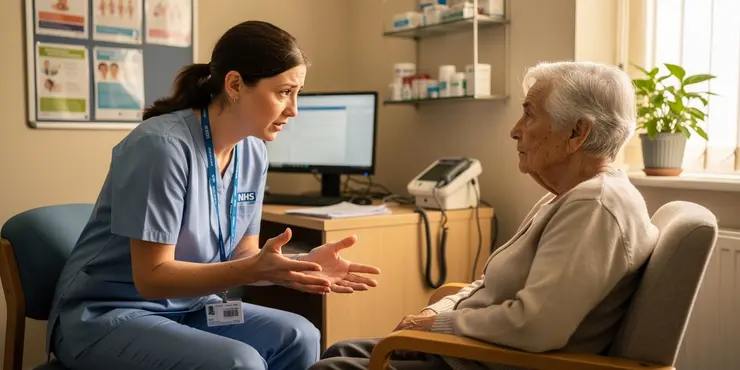
What is Shingles?
Relevance: 100%
-

Is shingles contagious?
Relevance: 99%
-
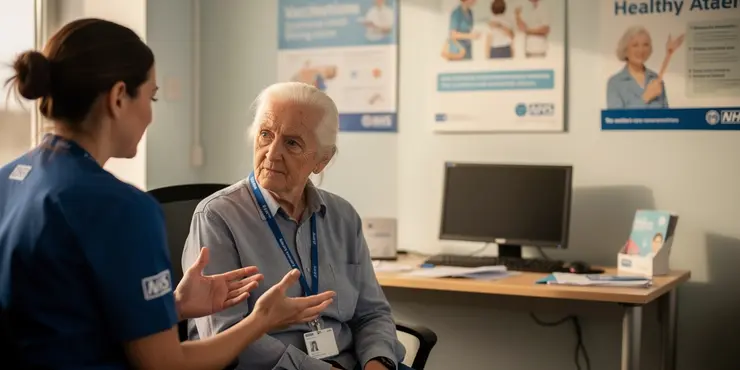
Can shingles be prevented?
Relevance: 96%
-
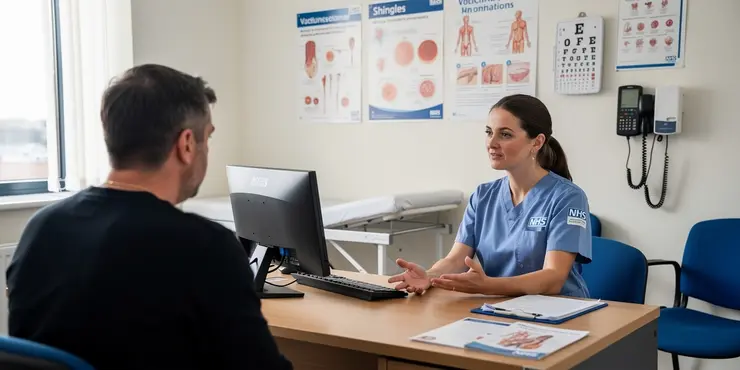
What causes shingles?
Relevance: 95%
-

What causes shingles?
Relevance: 95%
-
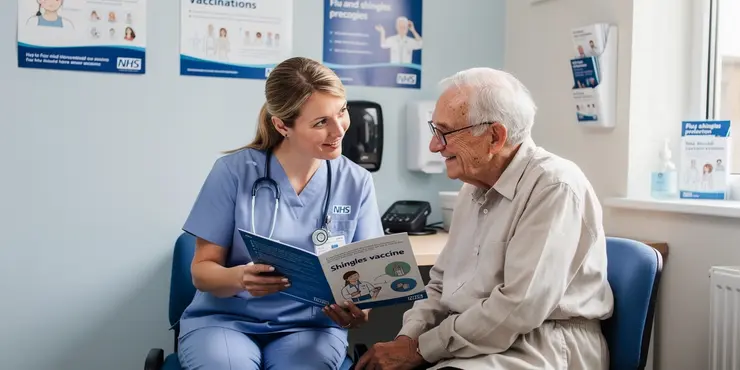
Is the shingles vaccine safe?
Relevance: 95%
-
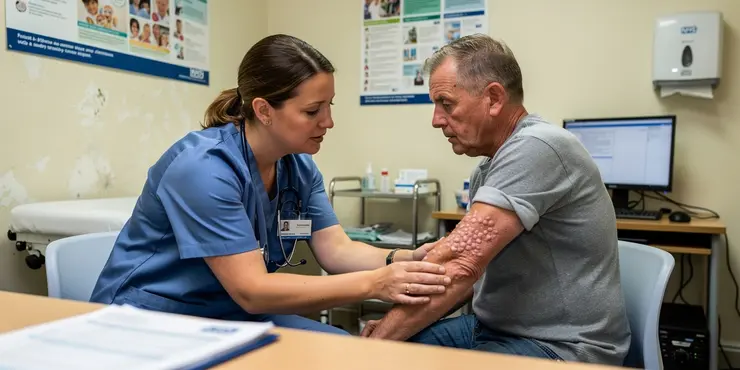
How is shingles diagnosed?
Relevance: 95%
-

Can shingles be prevented?
Relevance: 95%
-

What are the symptoms of shingles?
Relevance: 94%
-

Who is at risk of developing shingles?
Relevance: 92%
-
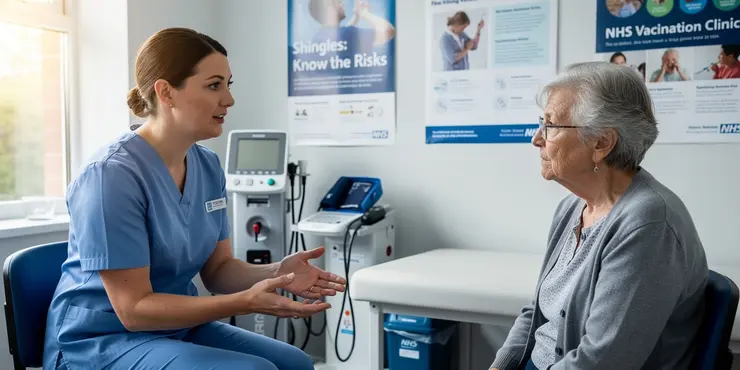
Are there any complications associated with shingles?
Relevance: 92%
-

Are there any complications associated with shingles?
Relevance: 91%
-
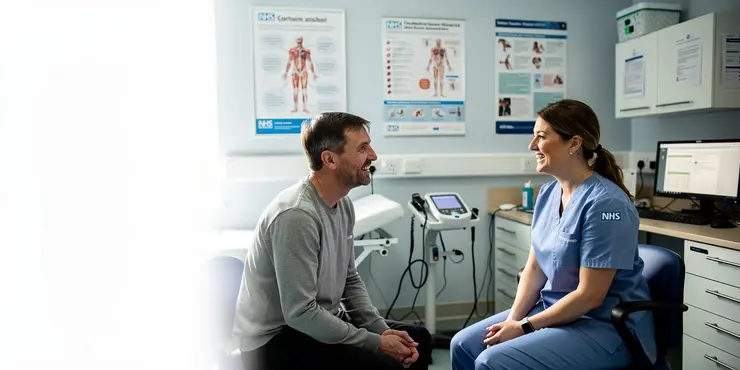
Can stress trigger shingles?
Relevance: 91%
-

What treatments are available for shingles?
Relevance: 91%
-

Can stress trigger shingles?
Relevance: 91%
-
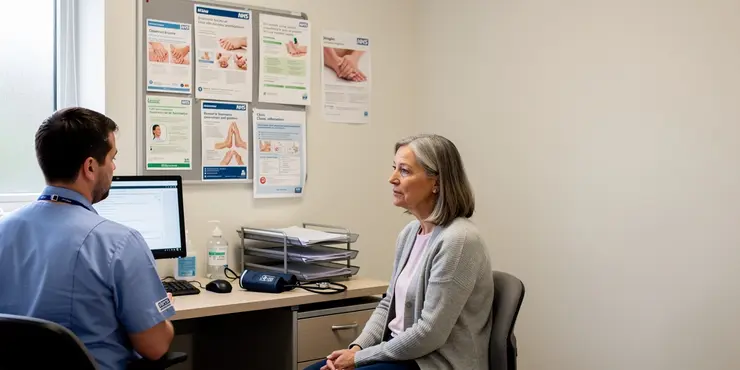
What treatments are available for shingles?
Relevance: 90%
-

Can the shingles vaccine cause chickenpox?
Relevance: 89%
-

Can the shingles vaccine cause chickenpox?
Relevance: 88%
-
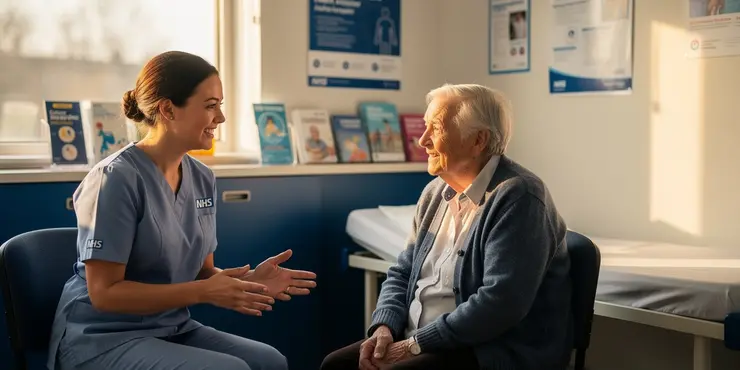
At what age should one get the shingles vaccine?
Relevance: 84%
-
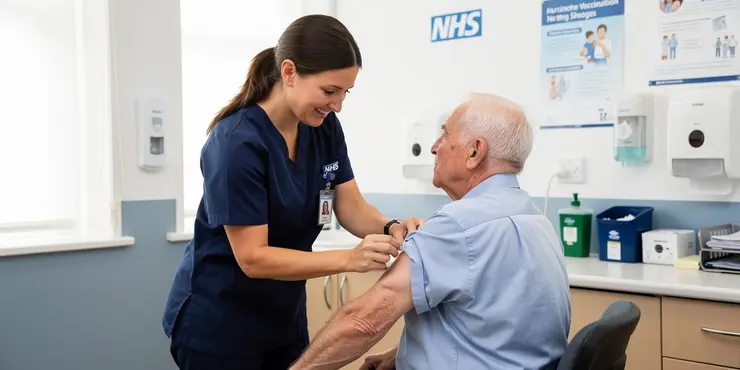
At what age should one get the shingles vaccine?
Relevance: 83%
-
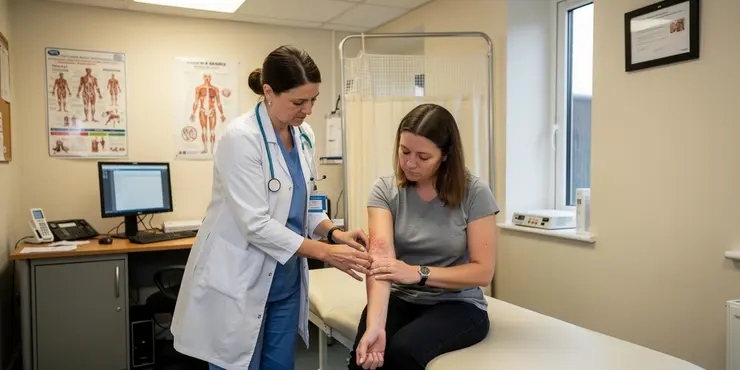
How is shingles diagnosed?
Relevance: 68%
-

Who is at risk of developing shingles?
Relevance: 65%
-
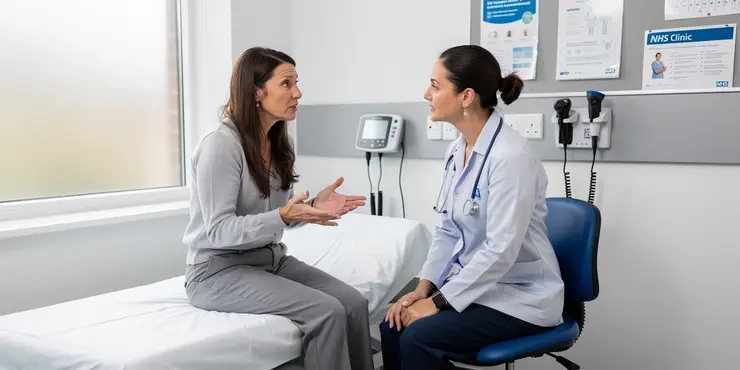
What should I do if I think I have shingles?
Relevance: 62%
-

How long does a shingles outbreak continue before it clears up?
Relevance: 55%
-
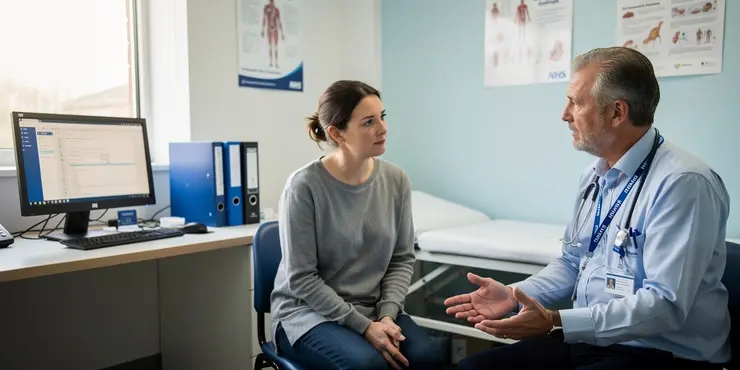
How long does a shingles outbreak continue before it goes?
Relevance: 55%
-
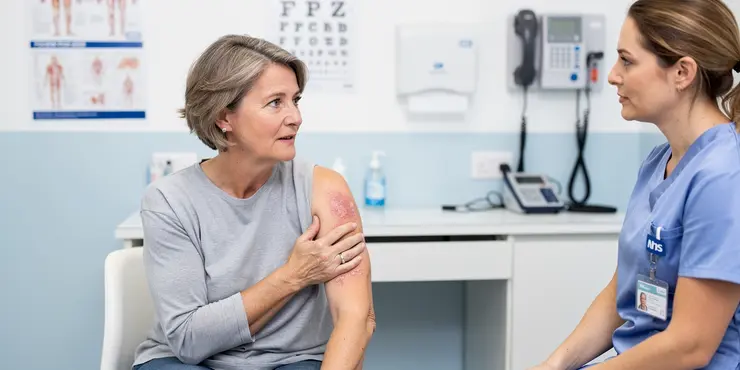
What is postherpetic neuralgia?
Relevance: 48%
-
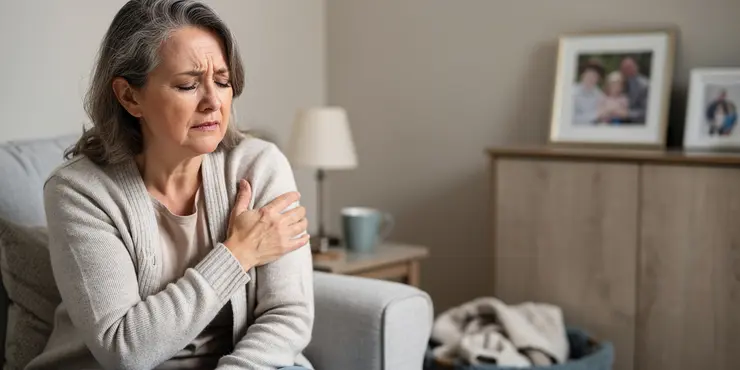
What is postherpetic neuralgia?
Relevance: 46%
-
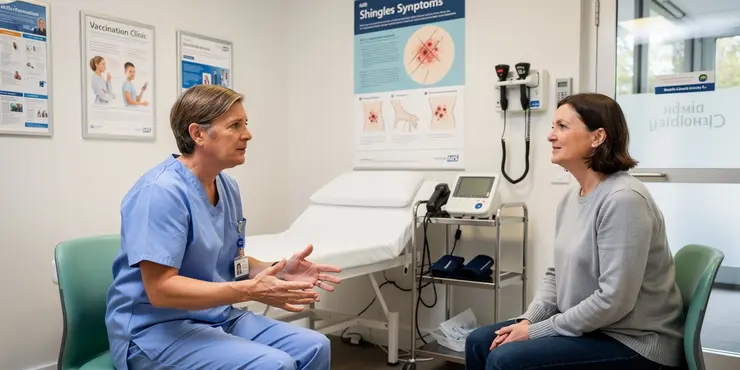
What are the symptoms of shingles?
Relevance: 44%
-

Can you get chickenpox more than once?
Relevance: 40%
-

Can adults get chickenpox?
Relevance: 35%
-
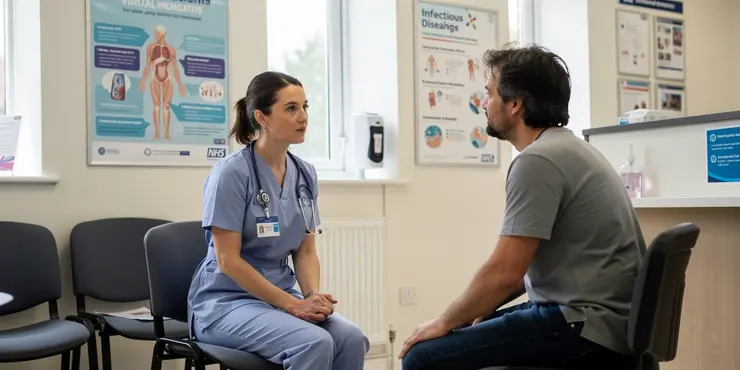
What causes viral meningitis?
Relevance: 19%
-
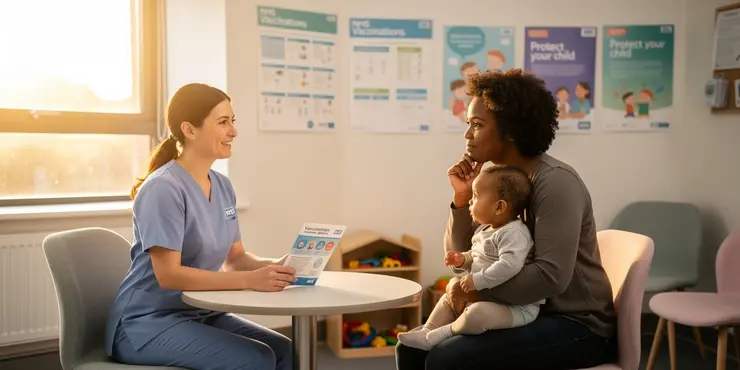
Should I get the chickenpox vaccine?
Relevance: 15%
-

Is chickenpox contagious?
Relevance: 14%
-
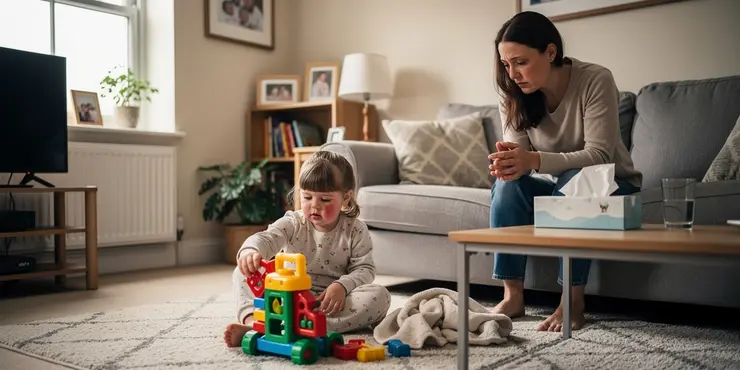
What is Chickenpox?
Relevance: 14%
-

What is a neuropathy?
Relevance: 14%
-
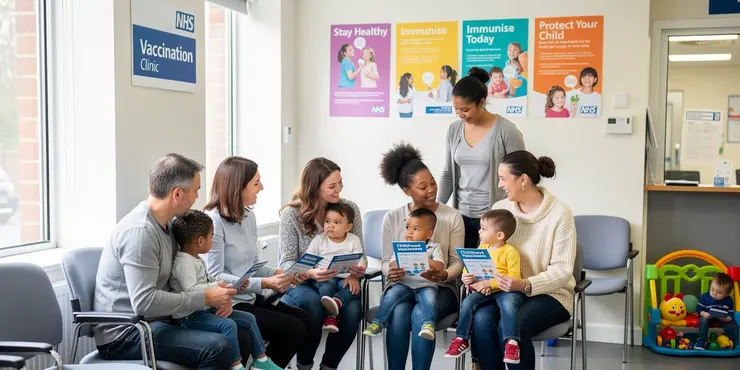
Have there been any government campaigns to increase vaccination rates?
Relevance: 14%
-

Can everyone receive vaccines?
Relevance: 13%
-
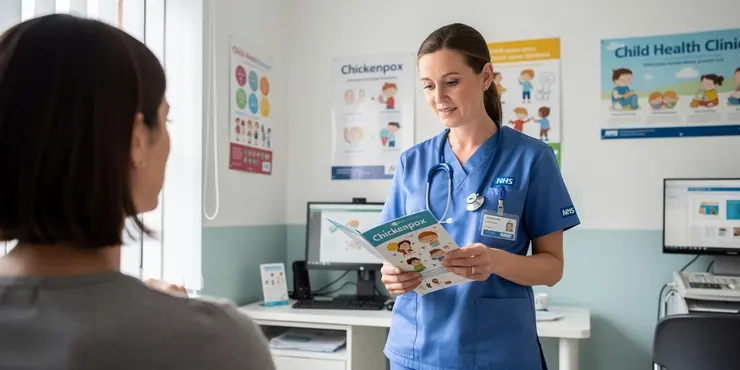
How is chickenpox spread?
Relevance: 13%
What is Shingles?
Shingles, also known as herpes zoster, is a viral infection that causes a painful rash. It is caused by the varicella-zoster virus, which is the same virus that causes chickenpox. After a person has recovered from chickenpox, the virus remains dormant in the body's nerve tissues. Many years later, the virus can reactivate as shingles.
Symptoms of Shingles
The initial symptoms of shingles often include pain, itching, or tingling in a specific area on one side of the body or face. This is typically followed by the appearance of a rash. The rash evolves into fluid-filled blisters that eventually crust over. The pain associated with shingles can be intense and is often described as burning, shooting, or stabbing. Some people may also experience fever, headache, or fatigue.
Who is at Risk?
Anyone who has had chickenpox is at risk of developing shingles, but it most commonly occurs in older adults and individuals with weakened immune systems. The likelihood of developing shingles increases with age. Other risk factors include physical trauma or prolonged stress, which can weaken the immune system and trigger the reactivation of the virus.
Complications of Shingles
A common complication of shingles is postherpetic neuralgia (PHN), which is persistent nerve pain that lasts for months or even years after the rash has healed. PHN is more likely to occur in older adults. Other complications can include vision loss if the shingles occur near the eyes and bacterial infections of the blisters. In very rare cases, shingles can lead to serious neurological problems, such as encephalitis.
Diagnosis and Treatment
Shingles is typically diagnosed based on the distinctive appearance of the rash and the distribution of blisters. Laboratory tests may be conducted to confirm the diagnosis. Treatment primarily focuses on managing symptoms and reducing the risk of complications. Antiviral medications, such as acyclovir, valacyclovir, or famciclovir, can help reduce the severity and duration of the illness if started early. Pain relief may be managed with over-the-counter painkillers or prescription medications for severe pain.
Prevention
Vaccination is an effective way to prevent shingles. Two vaccines are available in the UK: Zostavax and Shingrix. Shingrix is the preferred vaccine as it provides longer-lasting protection. The NHS offers the shingles vaccine to people aged 70 to 79 as part of the national immunisation programme. It is important to discuss vaccination with your GP to determine the most suitable option for you.
Conclusion
Shingles is a significant health concern, especially for older adults, due to its potential to cause severe pain and complications. Awareness of the early symptoms and the benefits of vaccination can help mitigate its impact. If you suspect you have shingles, seek medical advice promptly to start appropriate treatment.
What is Shingles?
Shingles is a sickness that gives you a painful skin rash. It is caused by the same virus that gives you chickenpox. After you get better from chickenpox, this virus stays inactive in your body. Many years later, it can wake up and cause shingles.
Symptoms of Shingles
Shingles usually starts with pain, itching, or tingling on one side of your body or face. Then, a rash appears. The rash turns into blisters filled with fluid. These blisters dry up and form a crust. The pain from shingles can be very strong. It feels like burning or sharp stabs. Some people might also get a fever, a headache, or feel very tired.
Who is at Risk?
If you had chickenpox before, you can get shingles. Shingles is more common in older people and those who have weak immune systems. The risk of getting shingles goes up as you age. Stress or getting hurt can also make it more likely.
Complications of Shingles
A common problem from shingles is long-lasting nerve pain called postherpetic neuralgia (PHN). This pain can last for months or years after the rash is gone. PHN happens more in older people. Shingles near the eyes can cause vision problems. Blisters can get infected with bacteria. In rare cases, shingles can cause serious brain problems.
Diagnosis and Treatment
Doctors usually know it's shingles by looking at the rash and blisters. Sometimes they do lab tests to be sure. Treatment helps manage symptoms and avoid problems. Medicines can make shingles less severe if taken early. Pain can be treated with common pain pills or stronger medicine if needed.
Prevention
Getting vaccinated can prevent shingles. There are two vaccines: Zostavax and Shingrix. Shingrix is better because it protects longer. In the UK, people aged 70 to 79 can get the vaccine from the NHS. Talk to your doctor to know which vaccine is right for you.
Conclusion
Shingles is a serious health issue, especially for older people. It can be very painful and cause problems. Knowing the first signs and getting vaccinated can help. If you think you have shingles, see a doctor quickly to get treatment.
Frequently Asked Questions
What is shingles?
Shingles is a viral infection that causes a painful rash. It is caused by the varicella-zoster virus, which also causes chickenpox.
What are the symptoms of shingles?
Symptoms of shingles include a painful rash, typically occurring on one side of the body, accompanied by tingling or burning sensations, fever, headache, and fatigue.
What causes shingles?
Shingles is caused by the reactivation of the varicella-zoster virus, the same virus that causes chickenpox. After a person has chickenpox, the virus lies dormant in nerve tissue and can reactivate later in life as shingles.
Who is at risk of developing shingles?
Anyone who has had chickenpox is at risk of developing shingles, particularly individuals over 50, those with weakened immune systems, and people under significant stress.
Is shingles contagious?
Shingles itself is not contagious, but the varicella-zoster virus can be spread to individuals who have never had chickenpox or been vaccinated against it, potentially causing chickenpox.
How is shingles diagnosed?
Shingles can be diagnosed by a healthcare professional based on the characteristic appearance of the rash and symptoms, sometimes confirmed with laboratory tests if necessary.
What treatments are available for shingles?
Treatments for shingles include antiviral medications to reduce the severity and duration, pain relief medications, and sometimes corticosteroids to reduce inflammation.
Can shingles be prevented?
Yes, shingles can be largely prevented by vaccination. The shingles vaccine is recommended for adults aged 50 and older.
What is postherpetic neuralgia?
Postherpetic neuralgia is a complication of shingles where the skin pain continues long after the rash has cleared, due to nerve damage.
How long does a shingles outbreak last?
A shingles outbreak typically lasts between 2 to 4 weeks from the appearance of the first symptoms to the resolution of the rash.
Can stress trigger shingles?
Stress can weaken the immune system, potentially triggering the reactivation of the varicella-zoster virus and causing shingles.
Are there any complications associated with shingles?
Yes, complications can include postherpetic neuralgia, vision loss if shingles affects the eye, neurological problems, and skin infections.
Can the shingles vaccine cause chickenpox?
The shingles vaccine does not cause chickenpox, as it uses a weakened form of the virus to stimulate an immune response without causing disease.
At what age should one get the shingles vaccine?
The shingles vaccine is generally recommended for adults aged 50 and older, regardless of whether they remember having had chickenpox.
Is the shingles vaccine safe?
Yes, the shingles vaccine is considered safe for most people and effective in reducing the risk and severity of shingles and its complications.
What should I do if I think I have shingles?
If you think you have shingles, seek medical attention promptly. Early treatment can help reduce symptoms and prevent complications.
Can children get shingles?
While rare, children can get shingles, particularly if they had chickenpox or received the chickenpox vaccine.
Does having shingles once provide immunity from future outbreaks?
Having shingles once does not make one immune from additional outbreaks; it is possible to have shingles more than once.
Can shingles affect other parts of the body besides the skin?
Yes, besides causing a rash, shingles can affect internal organs and nerves, leading to complications such as pneumonia, hearing problems, and encephalitis.
Is there a difference between shingles and herpes?
Yes, shingles is caused by the varicella-zoster virus, while oral and genital herpes are caused by the herpes simplex virus, indicating different infections.
What is shingles?
Shingles is a skin rash. It can be very painful. It is caused by a virus. This virus is the same one that causes chickenpox. If you had chickenpox, the virus can hide in your body. Later, it can make you have shingles.
If you need help reading, ask someone to read with you. Use tools like picture cards or videos to learn more. If you feel pain or see a rash, tell an adult or a doctor.
Shingles is a sickness caused by a virus. It gives you a sore, itchy skin rash. The same virus also makes chickenpox.
What signs show you might have shingles?
Shingles can make your skin hurt. It shows up as a rash. The rash is usually on one side of your body. It might tingle or burn. You might also get a fever, headache, or feel very tired.
What makes shingles happen?
Shingles happens because of a virus. This virus is the same one that gives you chickenpox. After you get chickenpox, the virus stays asleep in your body. Later, it can wake up as shingles.
Who can get shingles?
If you had chickenpox, you might get shingles. This is more likely if you are over 50 years old, if your body can't fight germs well, or if you are very stressed.
Can you catch shingles from someone?
Shingles cannot be given to someone else. But if someone has never had chickenpox or the chickenpox shot, they can catch the virus and get chickenpox from someone with shingles.
How do doctors find out if you have shingles?
Doctors look at your skin and ask about your feelings. They might take a small piece of your skin to test it. This helps them be sure it is shingles.
If you think you have shingles, it is a good idea to see a doctor.
If reading is hard, you can ask someone you trust to help you.
A doctor can tell if you have shingles by looking at your skin and how you're feeling. Sometimes, they might do a test to be sure.
What treatments can help with shingles?
Shingles is a virus that can make your skin hurt and itch. There are medicines and ways to help feel better.
- Medicine: Doctors can give you special medicine to help with the pain and itching.
- Creams: You can put some creams on your skin to help soothe it.
- Rest: Try to get plenty of sleep and take it easy to help your body heal.
- Cold Packs: Place a cold, damp cloth on the sore spots to feel better.
If it hurts a lot, tell a grown-up or visit a doctor. They can help you feel better and choose the best treatment for you.
If you have shingles, there are medicines that can help. Some medicines can make shingles less painful and help you get better faster. You can also take medicine for pain. Sometimes, a doctor might give you another medicine to help with swelling and redness.
How can you stop getting shingles?
Yes, you can stop shingles with a vaccine. People who are 50 years old and older should get the shingles vaccine.
What is postherpetic neuralgia?
Postherpetic neuralgia is a kind of pain. It can happen after a person has had shingles. Shingles is a skin rash. This pain can feel like burning or itching. It can last a long time, even after the rash is gone.
Here are some ways to help:
- Ask a doctor for help.
- Use medicine to help with pain.
- Try to keep the skin cool and comfortable.
Postherpetic neuralgia is a problem that can happen after you have shingles. It means the skin still hurts even when the rash is gone because the nerves are hurt.
How long does shingles last?
A shingles outbreak usually lasts 2 to 4 weeks. It starts with the first sign of illness and ends when the rash goes away.
Can stress cause shingles?
When you feel stressed, it can make your body weak. This might wake up the virus that causes chickenpox and make you get a sickness called shingles.
Can shingles cause any problems?
Yes, shingles can cause other problems. These might be nerve pain that lasts a long time, trouble seeing if it affects the eye, problems with the brain, and skin infections.
Can the shingles shot give you chickenpox?
The shingles shot is a special medicine. It helps stop people from getting shingles. Shingles is a rash that can hurt a lot.
Some people worry that the shingles shot might give them chickenpox. This is because both chickenpox and shingles are from the same virus.
The shingles shot does not give you chickenpox. It is meant to keep you safe.
If you have questions or feel worried, talk to a doctor or nurse. They are there to help you.
You can also look at pictures or use apps to understand more. These tools can help make things clear.
The shingles vaccine will not give you chickenpox. It uses a weak part of the virus to help your body fight it. This doesn't make you sick.
When should you get the shingles vaccine?
It’s good to get the shingles vaccine when you are 50 years old or older. Ask your doctor for advice. They can help you decide the best time to get it.
Using a calendar can help you remember. You can also ask someone you trust to remind you.
The shingles vaccine is a shot for people 50 years and older. It helps protect them from getting shingles. It doesn't matter if they remember having chickenpox or not.
Is the shingles shot safe?
The shingles shot is safe. It helps stop people from getting shingles, which is a rash and can hurt a lot.
If you're scared or worried about shots, talk to your doctor or nurse. They can help you feel better.
It's a good idea to ask someone you trust to go with you when you get your shot.
Yes, the shingles vaccine is safe for most people. It helps stop you from getting shingles, or makes it not as bad if you do get it.
What should I do if I think I have shingles?
If you think you have shingles, here is what you can do:
- See a Doctor: Visit your doctor to make sure you have shingles.
- Tell Someone: Talk to a family member or friend about how you feel.
- Rest: Make sure you rest and take care of yourself.
- Use Medicine: Your doctor might give you medicine to help you feel better.
- Keep Clean: Wash your hands and keep the rash clean.
Tools and techniques that might help:
- Ask for Help: Ask someone to help you understand what the doctor says.
- Write it Down: Write things down so you remember them.
- Use Pictures: Look at pictures to understand what shingles is.
If you think you have shingles, go to the doctor quickly. Getting help early can make you feel better and stop any problems from happening.
Can kids get shingles?
Yes, kids can get shingles, but it is not very common. Shingles is a rash that can be painful.
If a kid already had chickenpox, they might get shingles later. But this does not happen a lot.
If you or your child have questions, talk to a doctor. They can help and give advice.
Sometimes, kids can get a sickness called shingles. This can happen if they had chickenpox before or got the chickenpox shot.
If you get shingles once, can you get it again later?
If you get shingles once, you can still get it again. Shingles can happen more than one time.
Can shingles affect other parts of the body?
Shingles can sometimes affect more than just the skin. It might cause problems in other body parts like the eyes, ears, or nerves.
If you think you have shingles or are worried, it is a good idea to talk to a doctor.
Using a calendar to keep track of symptoms or a friend or family member to help you remember doctor visits can be helpful.
Yes, shingles can cause more than just a rash. It can also affect inside your body and nerves. This can lead to other problems like lung infection (pneumonia), trouble hearing, and problems with the brain (encephalitis).
Are shingles and herpes the same?
No, they are not the same. Shingles and herpes are caused by different viruses. But they can both cause rashes and blisters.
Shingles is from the chickenpox virus that stays in the body after you have had chickenpox.
Herpes is from another virus. It can cause cold sores or sores in other places.
If you need help, you can ask a doctor or nurse. They can tell you more about shingles and herpes.
You can also use apps to learn more or ask someone to explain it to you.
Yes, shingles and herpes are caused by different viruses. Shingles comes from the varicella-zoster virus. Oral and genital herpes come from the herpes simplex virus. This means they are different infections.
Useful Links
This website offers general information and is not a substitute for professional advice.
Always seek guidance from qualified professionals.
If you have any medical concerns or need urgent help, contact a healthcare professional or emergency services immediately.
Some of this content was generated with AI assistance. We’ve done our best to keep it accurate, helpful, and human-friendly.
- Ergsy carfully checks the information in the videos we provide here.
- Videos shown by Youtube after a video has completed, have NOT been reviewed by ERGSY.
- To view, click the arrow in centre of video.
- Most of the videos you find here will have subtitles and/or closed captions available.
- You may need to turn these on, and choose your preferred language.
- Go to the video you'd like to watch.
- If closed captions (CC) are available, settings will be visible on the bottom right of the video player.
- To turn on Captions, click settings .
- To turn off Captions, click settings again.
More Items From Ergsy search
-

Is shingles contagious?
Relevance: 100%
-

What is shingles?
Relevance: 100%
-

What is Shingles?
Relevance: 100%
-

Is shingles contagious?
Relevance: 99%
-

Can shingles be prevented?
Relevance: 96%
-

What causes shingles?
Relevance: 95%
-

What causes shingles?
Relevance: 95%
-

Is the shingles vaccine safe?
Relevance: 95%
-

How is shingles diagnosed?
Relevance: 95%
-

Can shingles be prevented?
Relevance: 95%
-

What are the symptoms of shingles?
Relevance: 94%
-

Who is at risk of developing shingles?
Relevance: 92%
-

Are there any complications associated with shingles?
Relevance: 92%
-

Are there any complications associated with shingles?
Relevance: 91%
-

Can stress trigger shingles?
Relevance: 91%
-

What treatments are available for shingles?
Relevance: 91%
-

Can stress trigger shingles?
Relevance: 91%
-

What treatments are available for shingles?
Relevance: 90%
-

Can the shingles vaccine cause chickenpox?
Relevance: 89%
-

Can the shingles vaccine cause chickenpox?
Relevance: 88%
-

At what age should one get the shingles vaccine?
Relevance: 84%
-

At what age should one get the shingles vaccine?
Relevance: 83%
-

How is shingles diagnosed?
Relevance: 68%
-

Who is at risk of developing shingles?
Relevance: 65%
-

What should I do if I think I have shingles?
Relevance: 62%
-

How long does a shingles outbreak continue before it clears up?
Relevance: 55%
-

How long does a shingles outbreak continue before it goes?
Relevance: 55%
-

What is postherpetic neuralgia?
Relevance: 48%
-

What is postherpetic neuralgia?
Relevance: 46%
-

What are the symptoms of shingles?
Relevance: 44%
-

Can you get chickenpox more than once?
Relevance: 40%
-

Can adults get chickenpox?
Relevance: 35%
-

What causes viral meningitis?
Relevance: 19%
-

Should I get the chickenpox vaccine?
Relevance: 15%
-

Is chickenpox contagious?
Relevance: 14%
-

What is Chickenpox?
Relevance: 14%
-

What is a neuropathy?
Relevance: 14%
-

Have there been any government campaigns to increase vaccination rates?
Relevance: 14%
-

Can everyone receive vaccines?
Relevance: 13%
-

How is chickenpox spread?
Relevance: 13%


